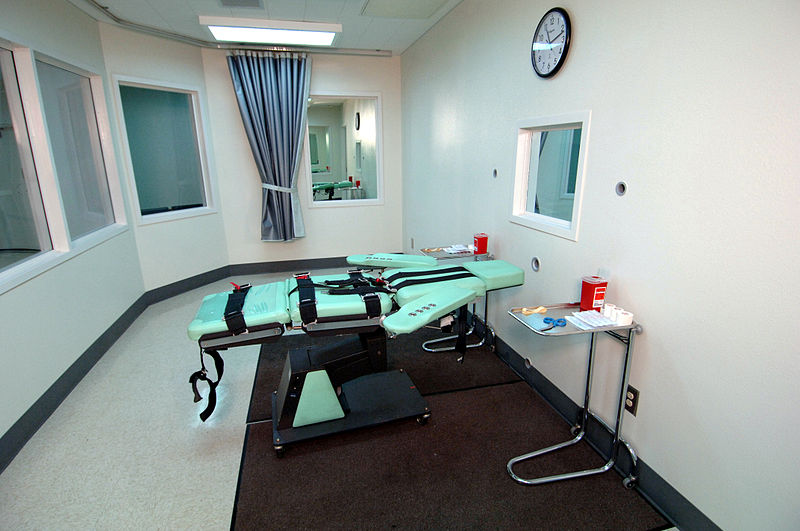Should the Death Penalty be Outlawed?
Will the death penalty meet its end in the US?

Stephen Henderson talks with Austin Sarat, professor jurisprudence and political science at Amherst College, about the death penalty. Sarat is the author of Gruesome Spectacles: Botched Executions and America’s Death Penalty. They discuss why the Supreme Court upheld the use of midazolam in lethal injection, Breyer’s dissent, and how the national conversation about the death penalty continues to change.
- SCOTUS’s history of upholding capital punishment: Sarat says that the Supreme Court has only addressed the death penalty three times in its 140 year history and has upheld both firing squads and the electric chair as legal means of administering it.
- “Machinery of death”: Sarat says that the national conversation about the death penalty has shifted from abstract concern about the morality of death to concern about how the “machinery of death” functions. He says that the question is whether the death penalty is consistent with America’s legal and political commitments.
- Botched executions: Sarat has studied every execution in the US from 1900-2011, and says that 3% of executions total have been botched. The highest rate of botched executions occurs using lethal injection, at 7%.
- Justice vs. revenge: Sarat believes anger in the face of heinous crimes is understandable and justifiable, but says that we as a nation have a commitment to exercise restraint and not stoop to their level. He says it is the test of any society to exercise restraint in the face of wrongdoing.
- Recent decline: Sarat says that the number of people convicted under the death penalty, as well as the number executed, has declined drastically within the past fifteen years. He says that 13 states do not have the death penalty, and 11 that do have not used it within the past eight years. He believes the death penalty will eventually end in the US, but expects this to be incremental.
- Unachievable ideal: Sarat says that we must resist the temptation to discuss the ideal death penalty, or how we would feel about the death penalty were the rest of the justice system to work perfectly. He says that in the past, the Supreme Court and the US as a society have believed that each method of administering the death penalty would be temporary and that we would eventually find an ideal humane method of execution. He believes we have become disillusioned with this promise, and that it is unachievable in practice.
Click the audio link above to hear the full conversation.
